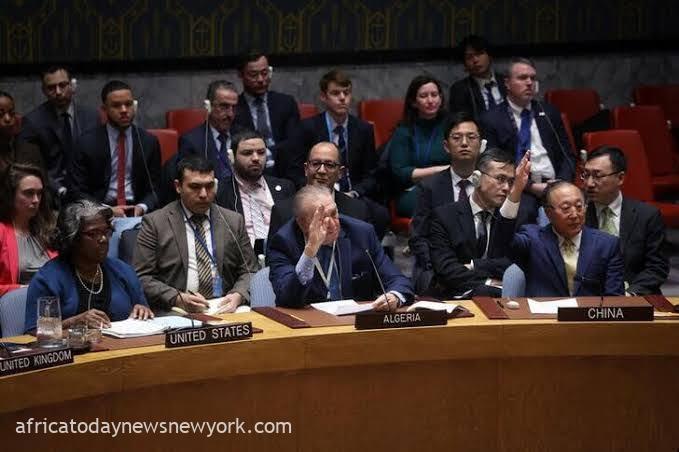In a display of solidarity, Russia and China wielded their vetoes to block a US-backed resolution on a Gaza ceasefire in the Security Council.
Their stance echoed that of Arab nations, deeming the proposal insufficient in its pressure on Israel, while Moscow criticized Washington for what it termed a “hypocritical spectacle.”
The United States, Israel’s staunch ally known for vetoing past ceasefire initiatives, proposed a resolution at the Security Council advocating for an urgent and lasting ceasefire while also condemning Hamas’ October 7 attack for the first time.
While Russia and China wielded their veto power, Algeria registered its dissent, and Guyana chose to abstain. On the flip side, the remaining 11 Security Council members, including permanent fixtures France and Britain, voted in favor.
Russia’s ambassador, Vasily Nebenzia, criticized the proposed text, arguing it would not effectively rein in Israel and mocking Washington’s call for a ceasefire, especially “after Gaza has been left in ruins.”
“We have observed a typical hypocritical spectacle,” he said.
Nebenzia said the US draft was intended to “play to voters and throw them a bone in the form of some kind of a mention of a ceasefire in Gaza.”
The resolution will “ensure the impunity of Israel, whose crimes are not even assessed in the draft.”
“Nor does it even provide an answer to the question of realizing a ceasefire in the short term,” he said.
The preliminary version refrained from explicitly calling for Israel to cease its operations in Gaza without delay. In the nuanced language typical of Security Council declarations, the draft asserts the urgency of an “immediate and uninterrupted” cessation of hostilities.
The ceasefire was contingent upon the progress of ongoing discussions, led by Qatar and supported by the United States and Egypt, aimed at ending the conflict in exchange for Hamas releasing hostages.
The Chinese representative, Zhang Jun, lambasted the draft for evading the crucial matter of a ceasefire due to its “ambiguous” language, Zhang argued.

